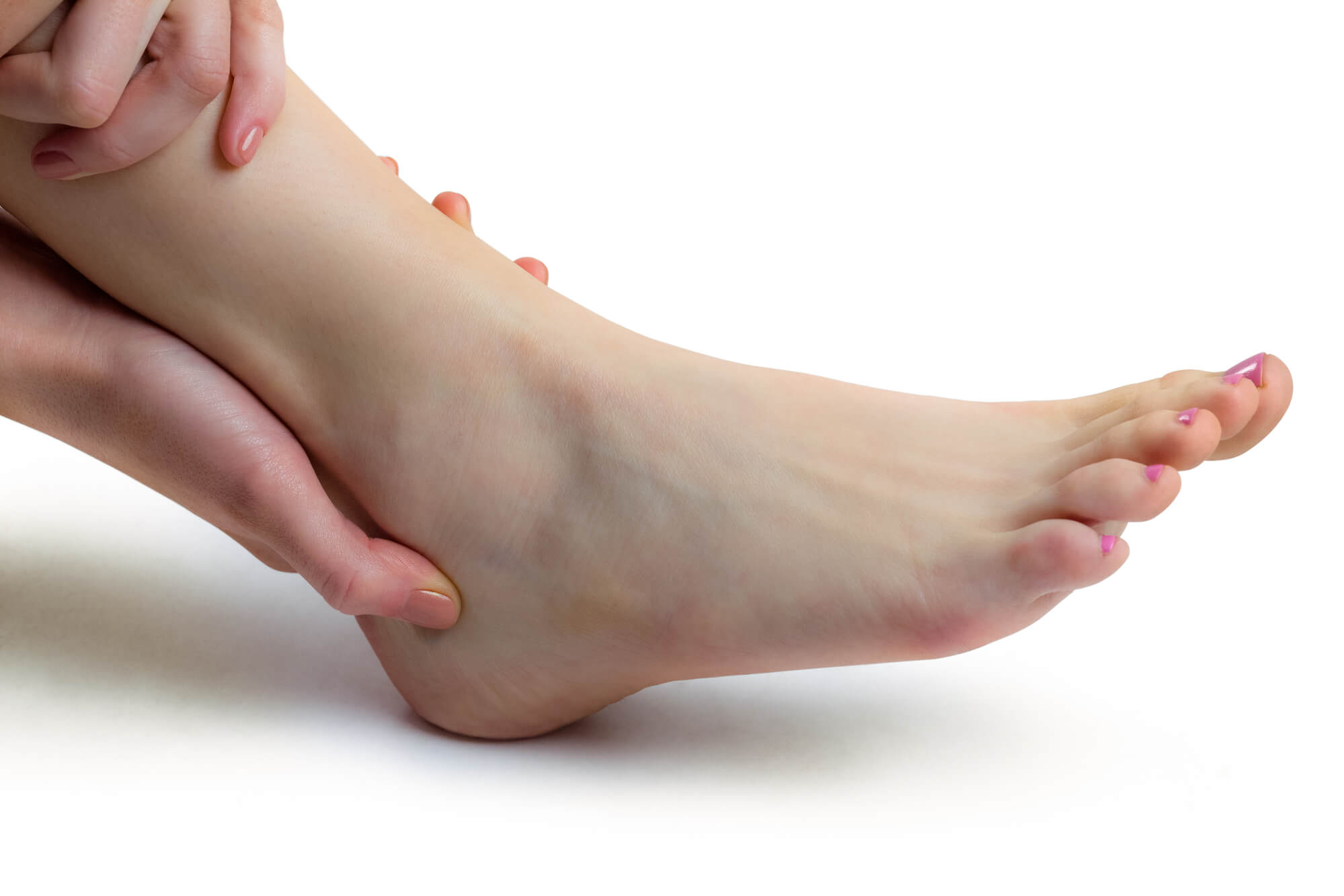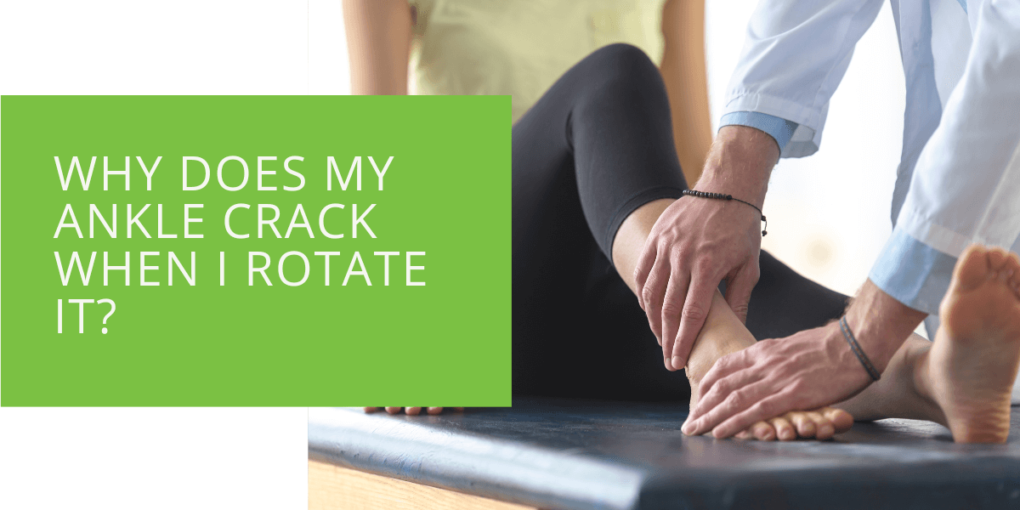Why Does My Ankle Crack When I Rotate It?
Do you ever experience a loud popping sound when you rotate your ankle? You're not alone. Ankle cracking can be a common yet perplexing occurrence that can make us wonder if something is wrong. But did you know this could be normal and not necessarily a cause for concern?
This detailed guide will investigate the reasons behind ankle cracking during rotation. Whether you're an athlete, someone with a sedentary lifestyle, or just curious about the mechanics of your joints, we've got you covered. Our team of foot and ankle specialists will provide expert insights into this intriguing topic so you can better understand why your ankle makes that sound and what you can do to manage and prevent it. So sit back, relax, and let's get to the bottom of this cracking mystery!
Key Takeaways
- Ankle cracking during rotation is often caused by the release of gas within the joint, tendon rubbing, or cartilage movements.
- Harmless ankle cracking is typically painless and doesn't affect joint function, but pain, swelling, or impaired function may require medical attention.
- Remedies, exercises, and preventive measures like proper warm-up and footwear choices can help manage and reduce ankle cracking, ensuring better joint health.
What Causes Ankle Cracking During Rotation?
Ankle cracking, or crepitus, occurs when a sudden gas is released within the ankle joint. Let's delve into the factors that lead to this intriguing phenomenon:
Joint Anatomy and Cartilage
- Joint Popping: The ankle joint consists of various bones, ligaments, and tendons that can create a popping sound when they move. This can be attributed to gas bubbles, often nitrogen, rapidly escaping from the synovial fluid within the joint.
- Tendon Rubbing: Tendons are responsible for connecting muscles to bones, and when they rub against bony structures or each other, they can produce a snapping or cracking sound.
- Cartilage Movements: Cartilage surfaces within the joint can also generate popping noises when they glide or move against each other.
Common Causes of Ankle Popping
- Tight Muscles: Muscles and tendons surrounding the ankle can become tight due to various reasons, including physical activity, lack of stretching, or previous ankle injuries. This tightness can contribute to popping sounds during rotation.
- Previous Ankle Sprain: Individuals who have experienced an ankle sprain may develop scar tissue or adhesions within the joint, leading to snapping or cracking sensations.
- Gas Release: Gas release within the joint can occur when you stretch or rotate your ankle, resulting in a snapping sound similar to cracking your knuckles.
Is Ankle Cracking Harmful?
Ankle cracking is not always a cause for concern, but it's essential to distinguish between harmless joint popping and situations that may require attention:
Harmless Ankle Cracking
- No Pain or Swelling: If your ankle cracking is painless and not accompanied by swelling or discomfort, it is likely harmless.
- No Impaired Function: If your ankle's range of motion and function remain normal, there is no need to worry.
When to Seek Medical Attention
- Pain and Swelling: If you experience pain, swelling, or discomfort along with ankle cracking, it may indicate an underlying issue that requires treatment.
- Impaired Function: If your ankle cracking is associated with limited movement or impaired function, consulting a podiatrist or foot and ankle specialist is advisable.

Remedies and Exercises to Manage Ankle Cracking
Managing ankle cracking often involves a combination of remedies and exercises aimed at improving joint health and reducing the popping sensation:
Stretching Routines
- Ankle Circles: Perform gentle ankle circles to improve joint flexibility and reduce tension in the surrounding muscles and tendons.
- Calf Raises: Strengthening calf muscles can help stabilize the ankle joint and reduce popping.
Strengthening Exercises
- Peroneal Tendon Strengthening: Specific exercises can target the peroneal tendons, which are crucial in ankle stability.
Footwear and Support
- Orthotic Support: Custom orthotics can provide better foot and ankle alignment, reducing the likelihood of ankle cracking.
- Proper Footwear: Choose appropriate footwear that provides support and cushioning for the feet and ankles.
Home Care Tips
- RICE Method: If you experience pain and swelling, apply the Rest, Ice, Compression, and Elevation (RICE) method to reduce inflammation and discomfort.
When Should You Consult a Doctor?
It's essential to know when to seek professional guidance for ankle cracking:
- Persistent Symptoms: If your ankle cracking persists despite trying home remedies and exercises, it's advisable to consult a podiatrist.
- Pain and Discomfort: A medical professional should evaluate any pain or discomfort associated with ankle cracking.
- Impaired Function: If your ankle's function is impaired or if you have concerns about your joint's health, seek medical attention.
Preventing Ankle Cracking During Rotation
Prevention is key to maintaining healthy ankles and reducing the occurrence of ankle cracking:
- Proper Warm-Up: Always warm up before engaging in physical activities to prepare your joints and muscles.
- Footwear Choices: Opt for shoes that provide adequate support and cushioning for your feet and ankles.
- Ankle Support: If you have a history of ankle issues, consider using ankle braces or taping for additional support.
- Regular Check-Ups: Schedule regular appointments with a podiatrist to monitor your ankle health and address any concerns promptly.
Conclusion
Ankle cracking during rotation is common and can be harmless or indicate an underlying issue. As experts in the field, we advise you to pay attention to any pain, discomfort, or impaired function associated with ankle cracking and seek professional guidance when needed. By understanding the causes and remedies for ankle cracking, you can take proactive steps to maintain the health of your feet and ankles. Don't let ankle cracking deter you from enjoying an active and pain-free life. If you have any concerns or require treatment, please schedule an appointment with us, and we will help strengthen your ankles and improve your overall well-being.

